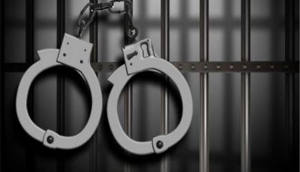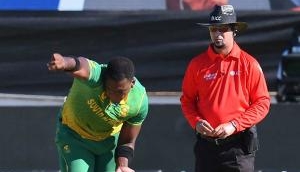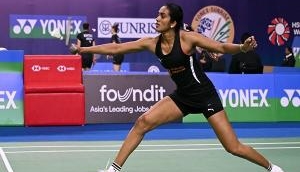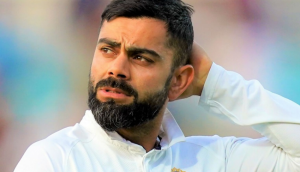Sreesanth verdict: defeat for the system more than a win for players

The problem
- India does not have a law on corruption in sport
- This is why Delhi Police invoked an underworld connection to charge Sreesanth & Co under MCOCA in the IPL spot-fixing scandal
- Legal eagles had opined after the 2000 match-fixing scandal that accused couldn\'t be tried under IPC or Gambling Act
- Successive sports ministers have shown a lack of political will about bringing in a law
The danger
- There are fears that without a law, the spectre of fixing won\'t go away
- Upcoming events like the ICC World T20 2016 and the FIFA U-17 World Cup will be at great risk
The solution
- India can follow in the footsteps of the UK\'s Gambling Act, 2005, and enact a strict law
On 25 July, the Patiala House court discharged all accused, including three cricketers, in the IPL 2013 spot-fixing.
This must be seen not as a victory for the cricketers, but as a defeat for the Delhi Police and its legal team, which chose to charge the players and others under the Maharashtra Control of Organised Crime Act (MCOCA).
In the opinion of Additional Sessions Judge Neena Bansal Krishna, the prosecution did not have enough material evidence for the accused to be charge-framed, thus bringing a two-year saga to an end.
It did not help that the Delhi Police, enthusiastic when it went public with details of the arrests of the cricketers, repeatedly asked for postponements in order to frame charges.
Pressing need for a law
What's worse is that sports lovers were served a grim reminder that India desperately needs a stringent law against corruption in sport (cricket, specifically), along the lines of the United Kingdom Gambling Act 2005.
In the absence of a specific law to deal with corruption in sport, and by invoking an underworld connection to cricketers via bookmakers, the Delhi Police's legal team believed that MCOCA was the apt criminal law to try the accused under. The court dismissed that idea.
Lessons from match-fixing scandal
For just a moment, let us cast our minds back to 2000-01, when Indian cricketers were charged with being in close touch with illegal bookmakers for the first time. Four players and a physiotherapist were slapped with bans, ranging from five years to life.
Three of them won reprieves in courts of law across the country at different times, each one successfully challenging BCCI's appointment of K Madhavan as inquiry commissioner.
In 2001, the CBI examined the legal position arising out of the inquiry into match fixing. It obtained the opinions of Justice Manoj Kumar Mukherjee, former Supreme Court judge, and the then-Solicitor General Harish Salve.
It was clear after the 2000 match-fixing scandal that corruption in sport could not be punished under the IPC
Mukherjee concluded that the facts of the inquiry in the case did not constitute an offence under Indian Penal Code Section 120-A (criminal conspiracy) and Section 415 (cheating). He opined that, technically, a case of criminal misconduct and disproportionate assets under the Prevention of Corruption Act, 1998, could be made out against some of the players who were public servants.
Salve was also in broad agreement that no criminal charges under cheating or under the Gambling Act could be filed against anyone because of the nebulous position of the law, as well as the improbability of the investigating agency being able to obtain sufficient legal evidence.
Thus, it was evident that the facts, as disclosed in the inquiry, did not constitute any offence under the provisions of the Indian Penal Code. Similarly, it was not possible to prosecute anyone under the Public Gambling Act due to the restrictions imposed as per Sec. 468 of Chapter XXXVI of the Criminal Procedure Code.
Institutional failure
In the decade-and-a-half since then, we have only seen lip-service being paid to the idea of bringing in a specific law against cheating in sport.
Successive Ministers of Youth Affairs & Sports have waxed eloquent about their intent, but none of them really put pen to paper. Clearly, an abysmal lack of political will has led to India being ill-prepared to battle corruption in sport, easily one of the fastest-growing crimes.
The CBI set up a Sports Integrity Unit in March 2014, but little is known about any work that it has done in joining hands with different stakeholders to prevent corruption in sport. For instance, the Board of Control for Cricket in India could have referred Hiken Shah's alleged 'corrupt approach' to a Mumbai Ranji Trophy team-mate to the SIU of CBI.
Indeed, only a day before the sessions court discharged all accused, Justice MB Shah, who heads the Special Investigation Team on black money, raised concerns about the illegal cricket betting market in India.
Do the law-makers really need the SIT to flag the issue? When the SIU was launched, the then-CBI director Ranjit Sinha said the agency would actively engage with Ministry of Youth Affairs & Sports so that a law dealing with corruption in sports is put in place at the earliest.
Didn't INTERPOL's Integrity in Sport Steering Group chair John Abbott tell India that it would be better to have the law and the necessary mechanism before it became difficult to deal with?
It can only be hoped that the latest setback in the movement against corruption in sport will ensure that the incumbent sports minister, Sarbananda Sonowal, gets the Prevention of Sports Fraud Bill to see the light of the day in Parliament.
If that does not happen, events like the ICC World Twenty20 2016 and the FIFA World Cup for Youth 2017, which will be hosted in India, run the risk of being targets for the illegal betting market.
First published: 25 July 2015, 23:41 IST





![BJP's Kapil Mishra recreates Shankar Mahadevan’s ‘Breathless’ song to highlight Delhi pollution [WATCH] BJP's Kapil Mishra recreates Shankar Mahadevan’s ‘Breathless’ song to highlight Delhi pollution [WATCH]](https://images.catchnews.com/upload/2022/11/03/kapil-mishra_240884_300x172.png)

![Anupam Kher shares pictures of his toned body on 67th birthday [MUST SEE] Anupam Kher shares pictures of his toned body on 67th birthday [MUST SEE]](https://images.catchnews.com/upload/2022/03/07/Anupam_kher_231145_300x172.jpg)






